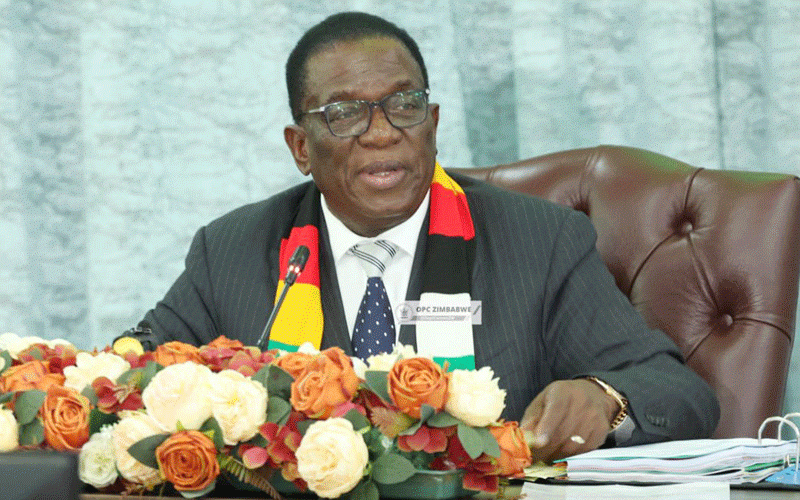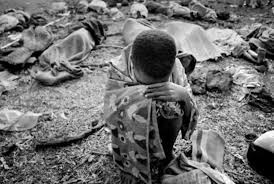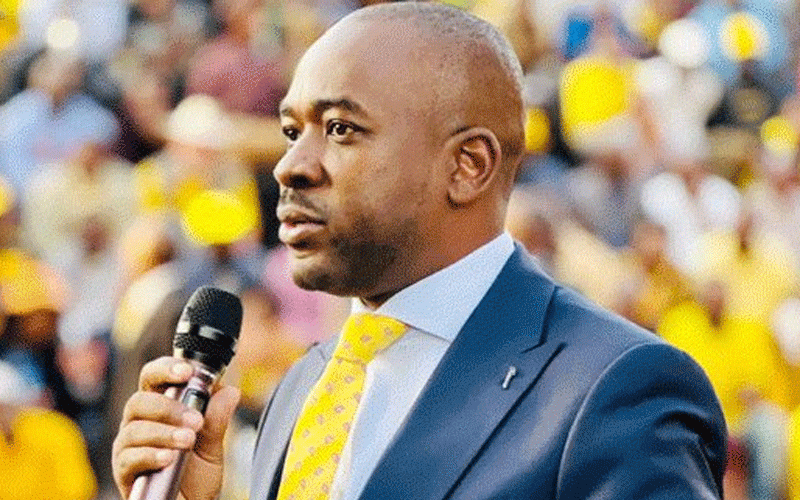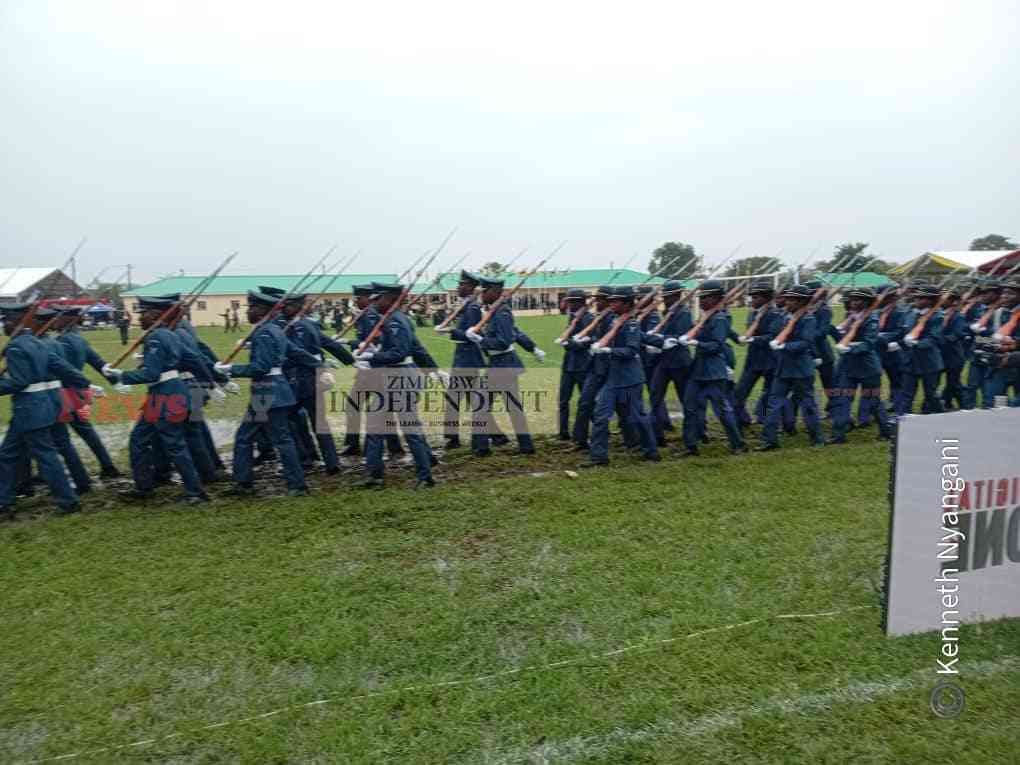
T
he reincarnated law introducing restrictive regulatory measures for non-governmental organisations (NGOs) as part of amendments to the Private Voluntary Organisations (PVOs) Amendment Bill is for the second time on its way or now before President Emmerson Mnangagwa’s (pictured) table awaiting his assent to make it law.
In his first term, Mnangagwa expressed reservations with what had been put before him and within his powers referred the law back to the legislature for reconsideration.
As fate would have it, the law suffered a natural death upon the dissolution of the ninth parliament’s tenure, paving the way for the 2023 general elections.
Laws by their nature have a legal lifespan and follow the legislative calendar.
The obvious hope of civics and promoters of developmental work and support initiatives of non-state actors was that the country had moved beyond this restrictive regulatory framework and that the policy intention and direction from the head of state and government was to keep this civic space governed in a self-regulatory manner.
Alas, the Bill was resurrected and within a year of having referred back to the legislature has the law again found its way on Mnangagwa's table for assent.
To put things into perspective, it is important to deliberate the law's intention in so far as regulating non-governmental organisations’ activities.
- I rejected Zanu PF scarf: Burna Boy
- NMB workers take on employer
- Mbavara eyes to resurrect Matavire’s music legacy
- I rejected Zanu PF scarf: Burna Boy
Keep Reading
The current regulatory regime recognises that NGOs can be registered as Trusts with the Deeds of registers or can operate by way of their constitution or governance frameworks as legal entities, referred to as common law universitas.
Under this framework, these NGOs are constitutionally protected with guaranteed rights to association and to organise and coordinate around a common cause as espoused by law.
In order to support the function, life and work of these organised groupings, funds towards the varying causes of these organisations are raised through fundraising initiatives.
In what the law identifies as public funding, most NGOs operating as Trusts or common law universitas are funded by donor agencies and international philanthropic organisations.
This is generally the norm the world over and in introspection, NGOs complement governments in all spheres.
In Zimbabwe, some NGOs are viewed as being hostile to the government and embedded in opposition politics.
This unfortunate tag on Zimbabwe’s NGOs, which on the part of leaders in the civic space have failed to adequately brush off have provided an impetus for the ruling party to have an inclination towards a restrictive regulatory framework.
The tag that associates human rights activism and the regime change agenda are rather unfortunate and have opened for a stringent regulatory regime for NGOs.
Not to suggest that the political fears of the ruling elite justify restrictive measures with a one size fits all approach to get every NGO to register as a PVO.
And in terms of this proposed law now before the president, the registration as PVOs doesn’t come on a silver platter.
It is a process. The import in this restrictive process is that a good number of the currently configured CSOs will fall by the wayside.
It is as good - rather bad as putting a premium cost for exercising their right to associate and organise around a common cause.
Of course, there is no right that is absolute and there is perhaps a challenge of reports of misappropriation of public and donor funds that has gotten the state’s attention and appetite to legislate.
However, the country already has statutes that handle criminal abuse of trust and specific funds. There is no need to punish or paint every single CSO with the same brush. Albeit punitively.
Not only will the state and the economy suffer from the losses of a financial and developmental nature but there is an increased risk of failing to attract the much needed donor support and supplies.
The policy thrust of Zimbabwe being open for business and the aspirations of the country becoming an upper middle income economy by 2030 and the national development strategy can only be attained with developmental support of NGOs.
A close analysis of the law passed by Parliament exposes gaps in the roles, functions and powers of the PVO Board, the Minister and the Registrar.
There is ambiguity in setting parameters on how existing NGOs can transition to PVOs with varying timelines that are not specifically defined and would require interpretation by the courts.
The law provides criminal sanctions against employees of NGOs outside organisational representation.
The unfettered powers of the Minister to interfere with the affairs of NGOs, including appointing interim structures were retained by the legislature despite public sentiments against this.
If anything, the legislature acted outside the submissions made by members of the public, an act ultra vires the Constitution.
What is on parliament records by way of the tabled report of citizens view on the Bill and what was eventually passed makes a mockery of the investment made to appreciate the views of the public.
The ball now is in Mnangagwa’s hands.
He has an opportunity to affirm his publicly declared commitment to constitutionalism by not assenting to this law.
In so doing, the president will be securing his administration’s legacy of being enablers rather than disrupters of a sector without direct threats to his own and party’s power.
In any event, the events happening in the developed world, global north as it were and the donor world, the sector is going to undergo a self-correcting process to an extent that those that will survive will be legitimately organised forces of development.
While negotiations on the Bill that are being coordinated by the Zimbabwe Institute and Amnesty International Zimbabwe should be sustained and legal propositions for the law not to pass amplified, the hope is that the law is not fast tracked to allow for rethinking the way forward.
Mnangagwa has an opportunity to save constitutionalism by throwing out the restrictive amendment Bill.
CSOs on their part, must move towards the setting up of effective self-regulatory mechanisms to avoid an accountability inadequacies that are being cited as a vacuum by the state.
Ultimately, CSOs and government serve the same constituency and the very same public.
To this end, it is now over to you Cde President. Here is a low hanging fruit to preserve your legacy as an adherent to constitutionalism.
Allow, your Excellency — for NGOs, especially those critical of you and are unhappy with the sad economic environment obtaining in the country to preserve whatever is left of our democracy and constitutionalism.
Whatever happens, democracy and constitutionalism should be held sacrosanct and by not assenting to this law, Mnangagwa would acquire some residual credit of aligning with the majority of Zimbabwean citizens.
*Nigel Nyamutumbu is a media development practitioner serving as the coordinator of a network of journalistic professional associations and media support organisations, the Media Alliance of Zimbabwe. He sits on Heads of CSOs Coalitions and Networks as well as the CSOs coordination committee. He can be contacted on njnya2@gmail.com or +263 772501557. This article is an output of a CSO engagement meeting facilitated by ZI and Amnesty International Zimbabwe in Kadoma between March 23 and 25, 2025.










